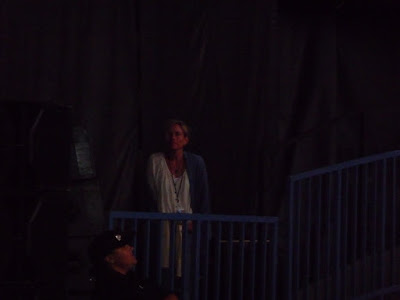
"Did you go see, "The Help?" I ask.
"Yes," says my friend. "Seeing the movie for me was almost more emotional than reading the book. We had a black maid when I was five. When we went to the movies together, she had to sit in the balcony. I couldn't understand why she couldn't sit with us?"
Finally, the book we've all been waiting for has come to the big screen, and it does not disappoint. I found the "The Help," movie as delightful as the book. But viewers be warned, it's not light fare.
Read: bring Kleenex.
"The Help," movie is like a roller coaster rider with the perfect mix of ups and downs. The highs will have audiences roaring with laughter, and the lows will have them sobbing in tears.
Based on the novel, The Help, by Kathryn Stockett, the movie does an amazing job transforming the author's words into a visual spectacle.
The Help, set in the south during the civil rights movement of the 60s, is told from the perspective of an aspiring white writer, Skeeter, and two black maids, Minny and Aibileen, who is also a writer.
Skeeter, enlists Minny and Aibileen, as interview subjects for a book exposing the truth of what it's like working for white women in the prejudicial south. Aibileen, being a writer, chooses to write her own side of the story, rather than be interviewed by Skeeter, as the other maids are in the film.
The film depicts how nonsensical racist people are, letting black women raise their own children while banning the maids from sitting on their toilets for fear of them spreading "black" diseases.
While many of the maids share terrible encounters with their white bosses, other maids reveal stories of friendship, compassion and strong bonds with the women they work for, sometimes for most of their lives.
The casting in the movie is absolute perfection. The three main characters play their roles true to the characters in the book . Minny, the feisty black maid, played by
Octavia Spencer should win an academy award for her role, just on facial expressions and body language alone.
Viola Davis plays Aibileen. While Aibileen is subdued on the surface, the audience can feel her emotions brewing to a boil underneath her self-controlled demeanor.
Skeeter, played by
Emma Stone, is a socially awkward, rebellious, outspoken, non-conforming white woman. Stone's character would have suffered far more repercussions for her actions, than being shunned from her born social group, if she were a black woman.
Visually the film is sweet sugar to the eyes, capturing the 60s era with colorful pastels, big, up, hair-dos, and picture perfect scenes. Juxtaposed to the visual sugar rush, is the assassination of Medger Evers and President Kennedy, in case viewers forget how dangerous a task the women are setting out to accomplish. The film also depicts the ramshackle living conditions of the maids, in stark contrast to the decadence of their white counterparts.
"The Help," gets away with plenty of emotional gut wrenching moments, by interspersing tons of humor that will leave audiences deeply satisfied at the end of the movie, rather than depressed.
"Why do you bring me to these sad movies?" says my Bestie, through tears.
"It's good sad," I say.
Movies that make us feel our feelings, and
remember our past, are free therapy in my book. Hopefully, someday stories such as these will help humanity stop practicing hatred based discrimination because of the color of someone's skin or their sexual preferences.
Acrhetypally, "The Help," is the classic story of the victim who rises up against her oppressors saying, "You will keep me down, NO Longer!" Even when that means going against her very own survival instincts.
"The Help," is a story about team work, unity, and unlikely friendships. The three courageous women discover,
TOGETHER, is the only way through adversity for the downtrodden, and will leave audiences cheering at the end.



































